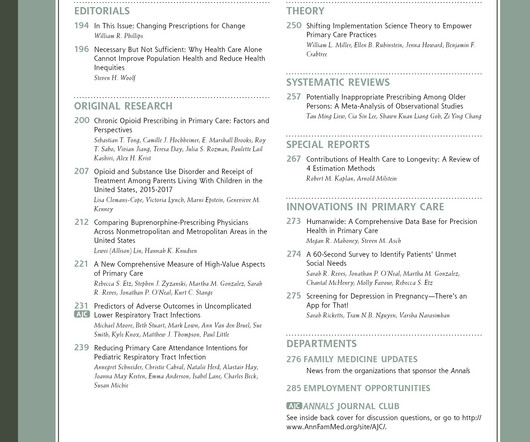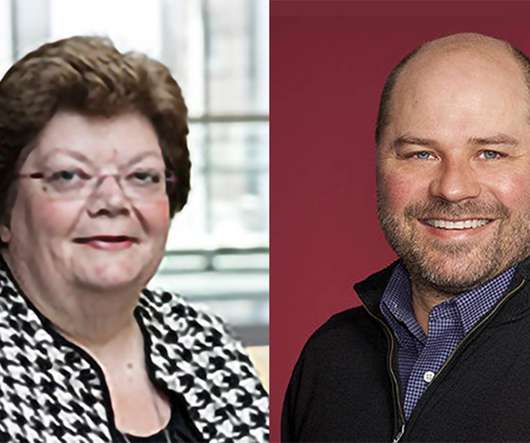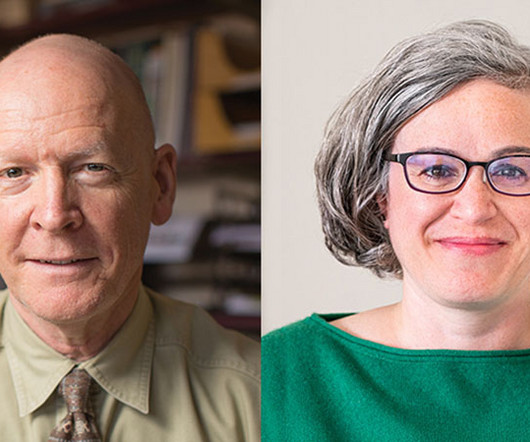Clinician perception of the relationship between mental health, health-related social needs, and diabetes outcomes [Diabetes and endocrine disease]
Annals of Family Medicine
NOVEMBER 20, 2024
Objective: To understand how clinicians perceive and discuss the relationship between mental health, HRSNs, and health-promoting behavior with patients with diabetes. Consequently, clinicians may avoid these stigmatized topics and provide general recommendations that can’t be followed by patients.























Let's personalize your content